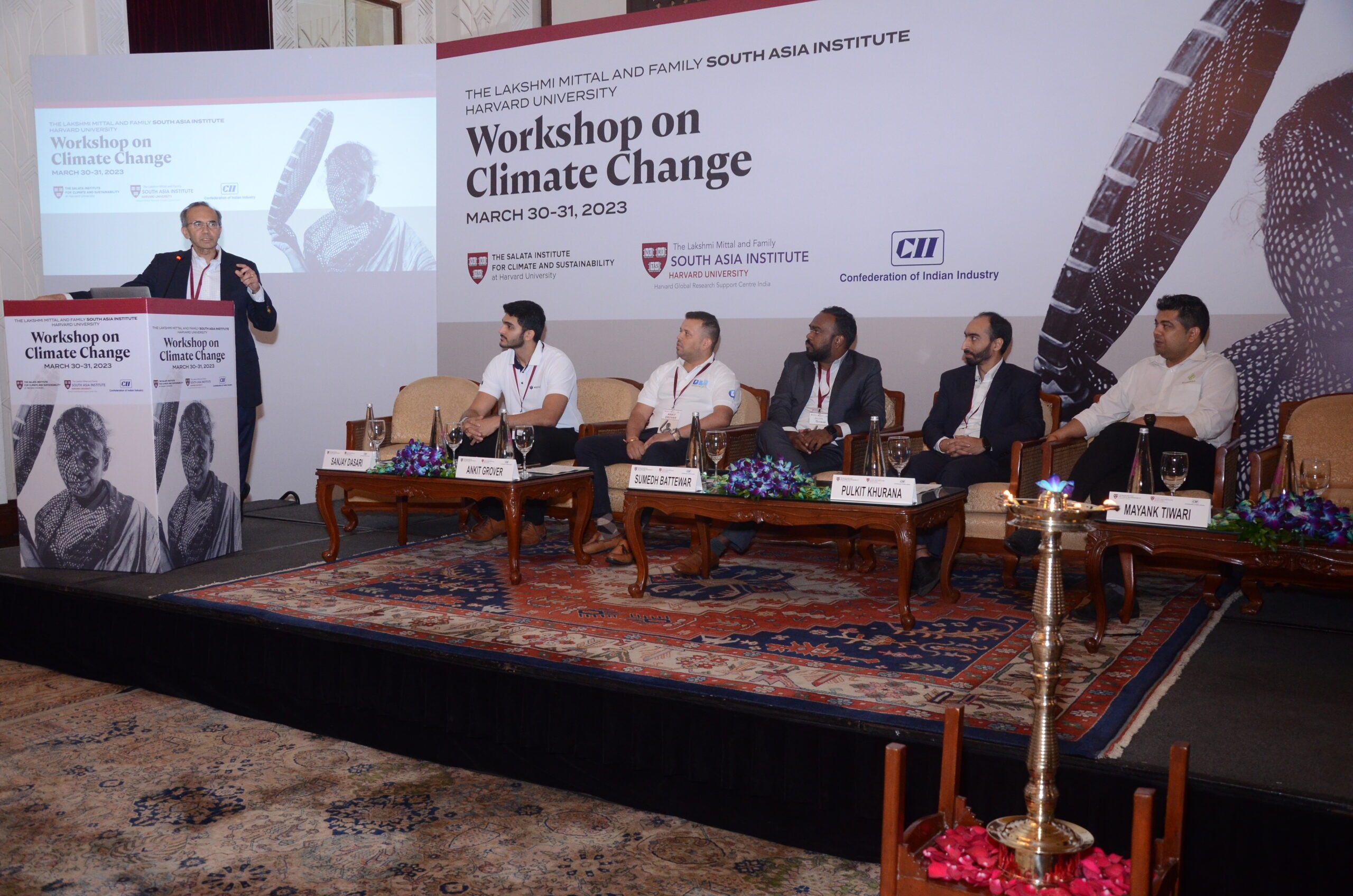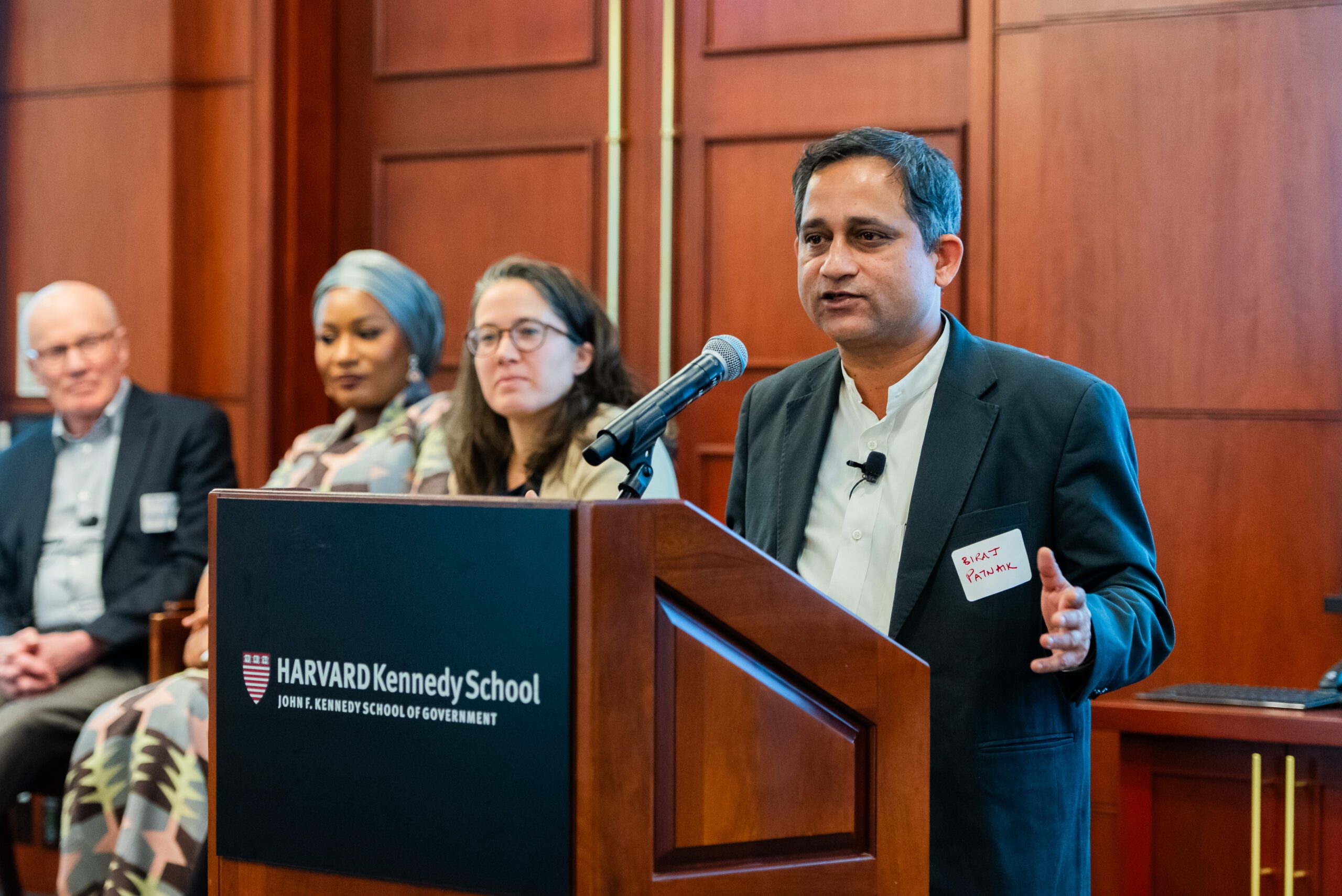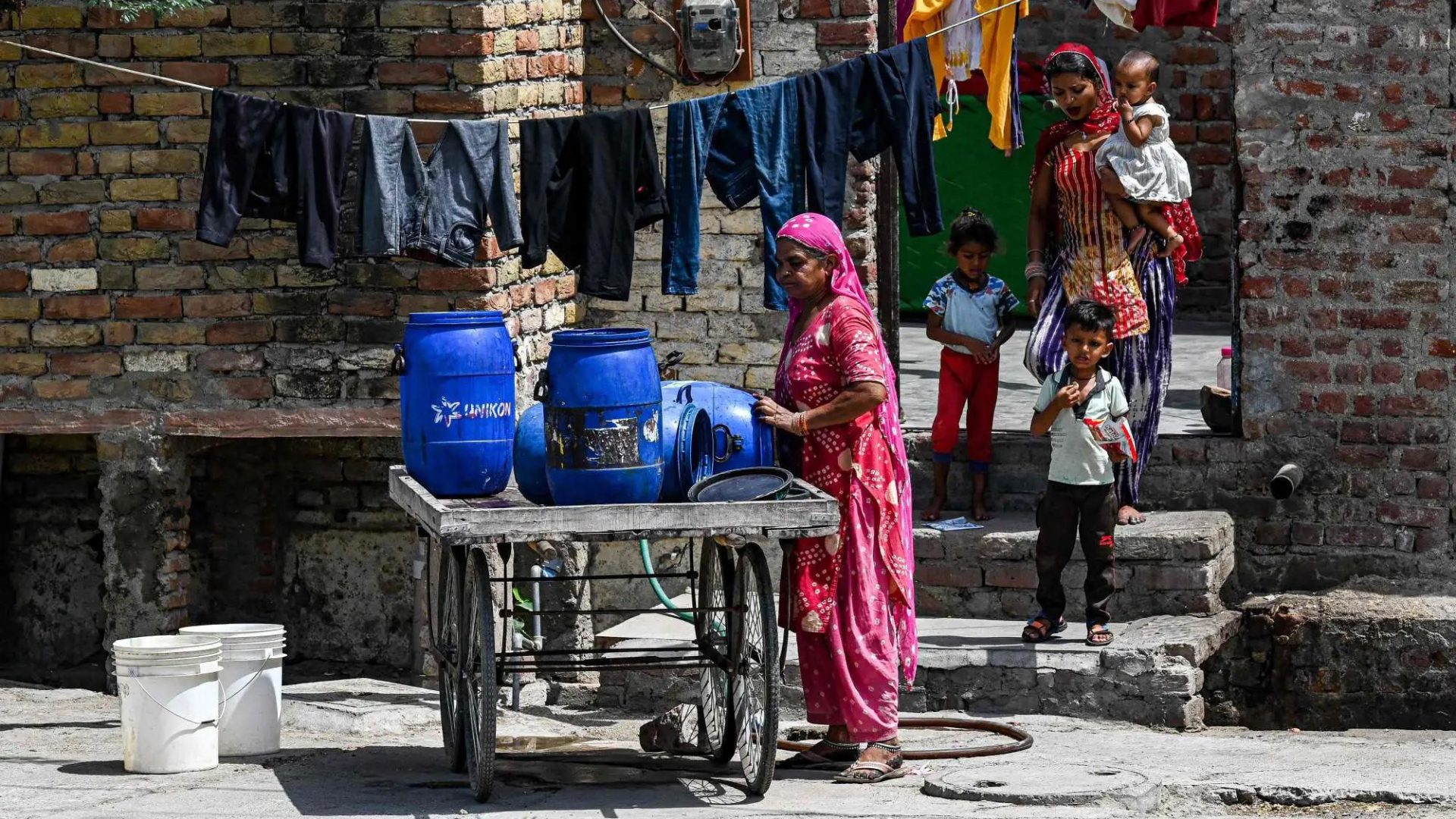Global Problem, Local Nuances
Climate change knows no borders, and in South Asia, climate impacts are amplified by socio-economic issues and infrastructure that are not adapted to climate-related disasters. The burden of climate mitigation needs to be borne by all countries globally and equitably, but South Asia urgently needs to focus on adapting to the impacts of climate change the region is already seeing.
In 2023, with the goal of increasing focus on adaptation, the Mittal Institute launched a new Climate Change in South Asia Platform, propelled by a grant from the Salata Institute for Climate and Sustainability at Harvard University. The Mittal Institute was one of the Salata Institute’s five Climate Research Clusters Programs selected across the university through a competitive process to work on climate adaptation in South Asia, bringing together researchers from different disciplines including medicine and public health, climate science, and economics. The Salata Institute program comprises of clusters of interdisciplinary, cross-school teams of researchers working on climate change challenges.

Tarun Khanna, Faculty Director of the Mittal Institute, speaks at the inaugural workshop on climate change in New Delhi, March 2023.
Laying the Foundation
Mittal Institute’s new Climate Change Platform kicked off with an interdisciplinary workshop on March 30-31, 2023 in New Delhi, bringing together a number of experts from the Centre for Policy Research, National Foundation for India, All India Disaster Management Institute, Self Employed Women’s Association (SEWA), the Energy and Resources Institute, BRAC and BRAC University, International Finance Corporation and other eminent organizations to discuss various crucial concerns related to climate change in the South Asian region. The extensive discussions provided key insights as the climate change platform moved forward into its inaugural year. It brought out crucial adaptation needs and the existing gaps in the region.
Watch the videos from the March 2023 workshop here.
How is South Asia Adapting?
In the summer of 2023, the Mittal Institute launched the project “Mapping the Landscape of Adaptation Action in South Asia,” in collaboration with partner organizations in India and Bangladesh, to examine the landscape of adaptation interventions underway in the region across sectors and actors. The team and partners – BRAC University in Bangladesh; Centre for Policy Research and All India Disaster Management Institute in India; and TrustBridge Rule of Law Foundation – began mapping the wide range of adaptation interventions underway in South Asia in response to extreme heat and other issues. The Mittal Institute supported publications by its partners examining aspects of adaptation to climate in the region.
One of the gaps discovered during the March workshop discussions was the lack of climate consciousness among laypersons, including about climate impacts and possible adaptation measures. The team collaborated with the National Foundation of India and the Community Science Alliance to produce Garmi (“Heat”) an informational video on heat stroke awareness and protection, which was screened at COP28.

Biraj Patnaik, Executive Director of the National Foundation for India, speaks at the workshop “Adaptation to Climate Change in South Asia and West Africa” at Harvard in November 2023.
In November 2023, researchers working on adaptation analysis in South Asia and West Africa convened in Cambridge to discuss shared problems of climate change, communicating on South-South issues for cross-geographical learning.
Ahead of COP28, the team published a policy brief, “Climate Change in South Asia: Requisites for a Sustainable Future,” summarizing the findings from the March and November workshops. Findings included the need to center at-risk communities while working to plan for various time horizons in implementation projects, and to create climate consciousness through accessible knowledge dissemination.
In-region, the team is working to build a network, bringing in novel methodologies for building datasets and knowledge on climate adaptation in South Asia. The team is also engaging with Salata Cluster Research faculty working in other vulnerable regions for cross-country learning, and is collaborating with community-based organizations who have previously not been involved in adaptation conversations despite conducting relevant work.
Building the Climate Platform
The ‘Climateverse: Driving data driven responses to climate change in South Asia’ project is building a regional data-ecosystem, working with partners in the region to assess available data, and climate-related data challenges. This key project is led by Caroline Buckee, Professor of Epidemiology, Harvard T.H. Chan School of Public Health; Satchit Balsari, Associate Professor in Emergency Medicine at Harvard Medical School and Beth Israel Deaconess Medical Center; and Tarun Khanna, Jorge Paulo Lemann Professor at Harvard Business School. The ongoing work is intended to support policymakers and other practitioners in the region for robust data-based decision-making.
Jointly with India’s Self Employed Women’s Association (SEWA), as well as other Harvard faculty and post-doctoral researchers, the team has also been working on Community HATS (Heat Adaptation and Treatment Strategies in South Asia). The project looks at the impact of extreme heat on poor working women, using sensors to measure their body heat and looking at the deviations from the India Meteorological Department’s data, caused by their environment and infrastructure. Over the past year, a team of Harvard students, faculty, and researchers have conducted site visits to Ahmedabad, India, to collaborate with SEWA members and leadership on project scope and design. Findings from this study have been made available online, demonstrating their experiences. The work under this project was also featured on the PBS NewsHour, looking at ‘How physicians are preparing for climate change and extreme heat’s impact on human health.’
The impacts of extreme heat and adaptation mechanisms will continue to be one of the largest focuses of the climate platform in the coming years.
The Community HATS (Heat Adaptation and Treatment Strategies in South Asia) project explores heat exposure where the poor work and live.
Other Projects on Climate
The institute has also supported faculty working for climate change research in the region. For example, Dr. Caleb Dresser, MD, MPH, Fellow, Harvard Center for Climate, Health and the Global Environment has been studying the implications of climate change for emergency care in India. Dr. Holly W. Samuelson Associate Professor of Architecture at the Harvard Graduate School of Design, is working on a project for ‘Ultra-Low-Cost Solutions for Overheating and Sleep Disruption in Indian Homes’; Gary Adamkiewicz, Associate Professor of Environmental Health Disparities at Harvard T.H. Chan School of Public Health is working on a project for ‘Healthy Ambient Lighting Environments for Dhaka City’; and Dr. Susan Crawford, John A. Reilly Clinical Professor of Law at the Harvard Law School is interviewing people in Bangladesh on how they’re adapting to floods and sea level rise.
There are also eminent fellows who have been hosted in the Cambridge office. For example, Atul Bhalla was a Distinguished Visiting Artist with the Mittal Institute’s Climate Initiative, and Dr. Vijay Chandru is a Distinguished Visiting Fellow for Climate and Science.
What Lies Ahead
Going forward, the Mittal Institute will build on the work done over the past year and develop further, studying crucial and immediate issues in climate change throughout the region with local stakeholders.
The projects are progressing in line with these ideas. The Climateverse project is looking forward to building a cohort of data entrepreneurs through training programs and informational sessions in partnership with local organizations. Community HATS is expanding beyond a pilot to an in-depth longitudinal study of individuals’ lived experiences and the physiological impact of heat on 720 women across 8 trades in Gujarat and across various age groups and housing types.
With these efforts, the Mittal Institute is aiming at building a platform for researchers on climate adaptation as well as end-users of such research, bringing them together on a single platform.

